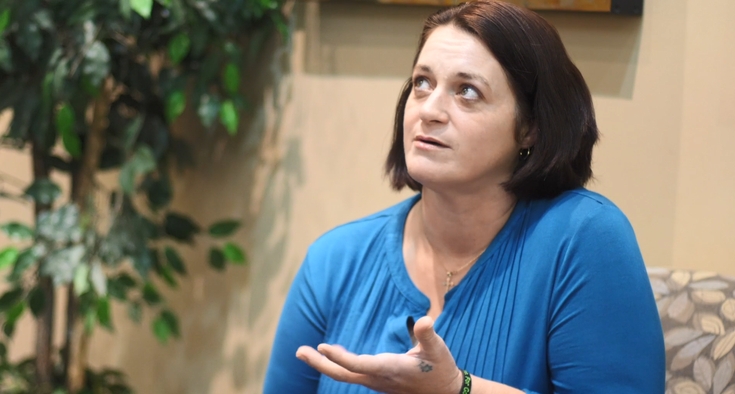Novant Health is adding a fresh new strategy in the fight against the opioid epidemic by changing the everyday language used in the description of patients.
The campaign, “Words matter: Say this, not that,” underscores the importance of focusing on patients who suffer from a disease rather than stigmatizing them with labels.
“From a health care perspective, it can instantly shut somebody down and turn a patient away from care when language is used that stigmatizes them. It makes them feel like they don’t matter,” said Bridget Bridgman, the director of medication safety at Novant Health and leader of Novant Health’s opioid stewardship initiative.
“We can’t wait another day and allow people who need our care be turned away by the language we use,” Bridgman said. “This is something we can change.”
Some 115 Americans die every day from an opioid overdose, according to a U.S. surgeon general report. The language initiative, in line with national guidance from the Substance Abuse and Mental Health Services Administration (SAHMSA), is part of a multipronged approach by Novant Health to fight the epidemic. Overall, about 20 million Americans suffer from substance use disorder.
The “Words matter” approach represents a shift to a use of a more person-centered or people-first language throughout Novant Health.
A cornerstone of the effort is built around the elimination of labeling patient as addicts or alcoholics. “Instead of saying, ‘Sally, you’re an addict,’ changing that to ‘Sally is a person suffering from opioid misuse’ or ‘Sally, who has opioid use dependency’ puts the person first,” Bridgman said. “A lot of it is people-first language. We’re not labeling people, we’re accepting them as a person who suffers from a disease.”
Phrase changes for “Words matter: Say this, not that” are:
- "Substance use or misuse” instead of “substance abuse.”
- “Person in recovery” instead of “former addict.”
- “People with alcohol or drug problems or dependencies” instead of “alcoholics and addicts.”
- “Medication-assisted treatment or medication-assisted recovery” instead of “opioid replacement or methadone clinic.”
- “Medication or treatment adherence” instead of “clear or dirty drug screen.”
- “Return to use” instead of “lapse or relapse.”
In 2017, Novant Health diagnosed more than 11,500 patients with opioid use disorder, 18 percent of those patients are receiving medication-assisted therapy to support their recovery.
While the opioid epidemic did not happen overnight, Novant Health is working to make as many needed changes as fast as possible. Language is just a piece of the puzzle, but it’s an important one.
“The biggest thing is people fighting substance abuse disorder are frequently blamed and punished for their condition instead of being offered help or treatment,” Bridgman said. “And the first way that we can help them to feel human again is to change the language that we use.”
In addition to stigma-reduction work, other ongoing efforts by Novant Health fighting opioids include a focus on safely and appropriately prescribing opioids for pain management, drug takeback programs and the use of multidisciplinary teams that focus on people cared for in Novant Health emergency rooms and clinics.
An opioid crisis steering committee is developing patient education tools, educating clinical team members on optimal care for substance use disorder and supporting the expansion of recovery support services. All Novant Health community pharmacies are also equipped to provide naloxone to patients without a prescription in accordance with standing orders issued by the state in North Carolina and Virginia.







